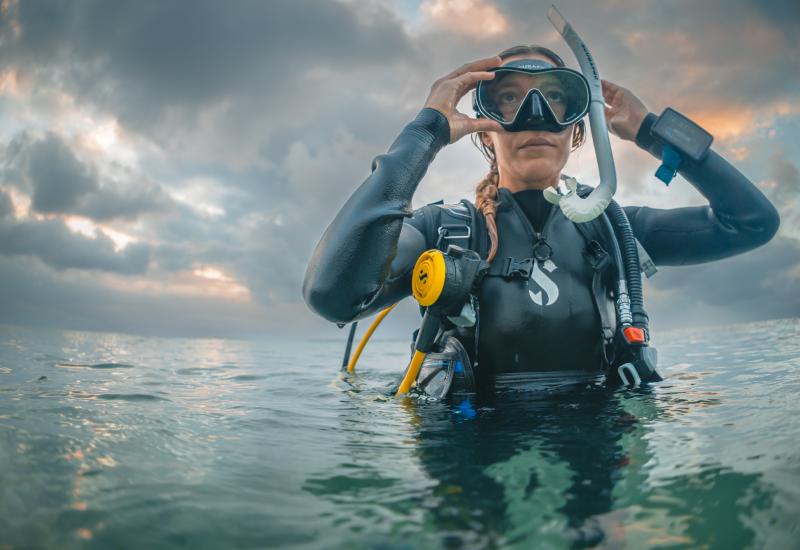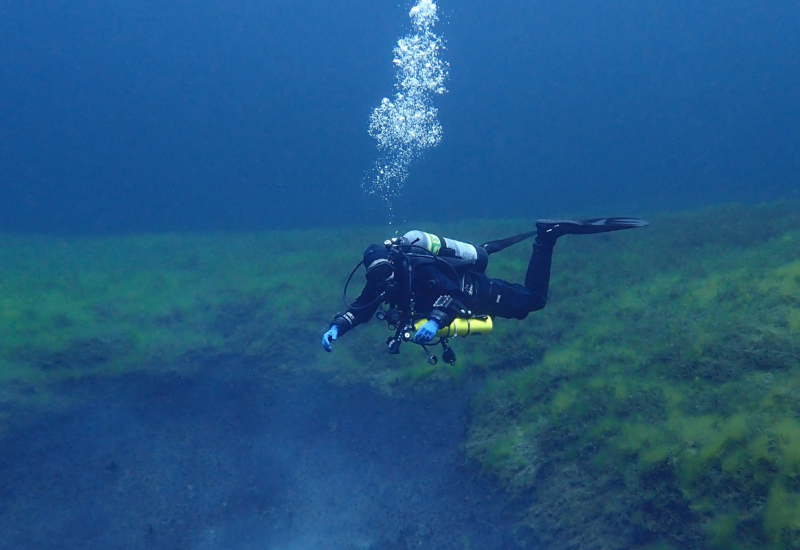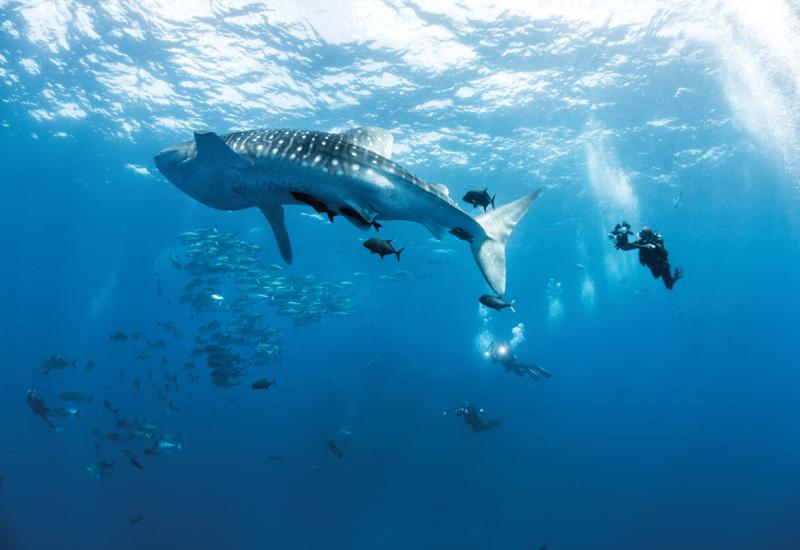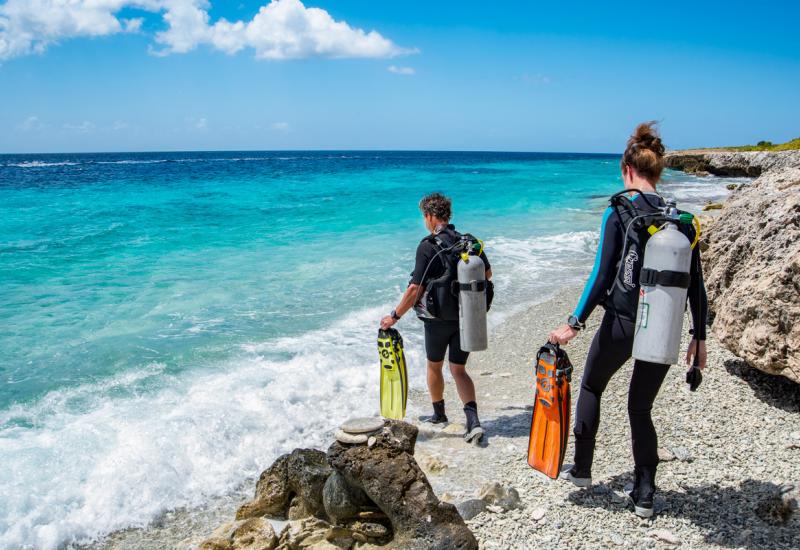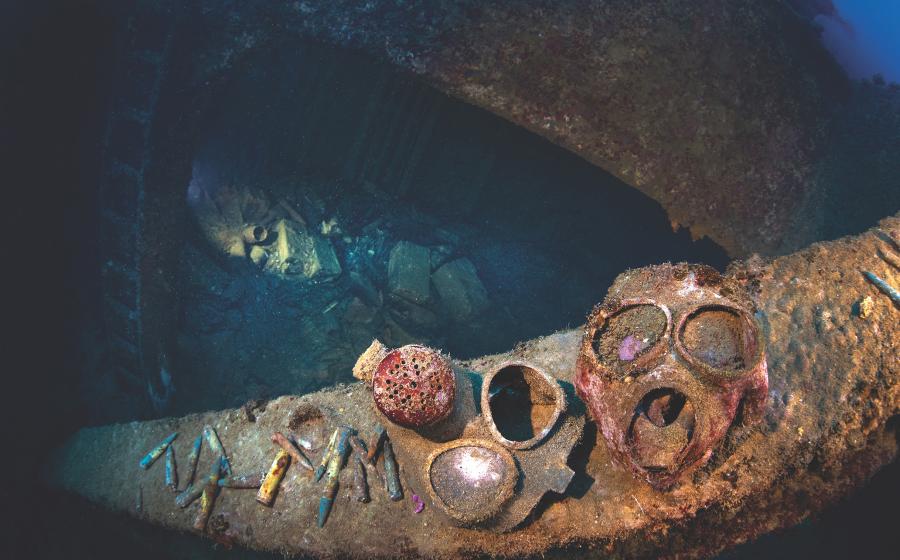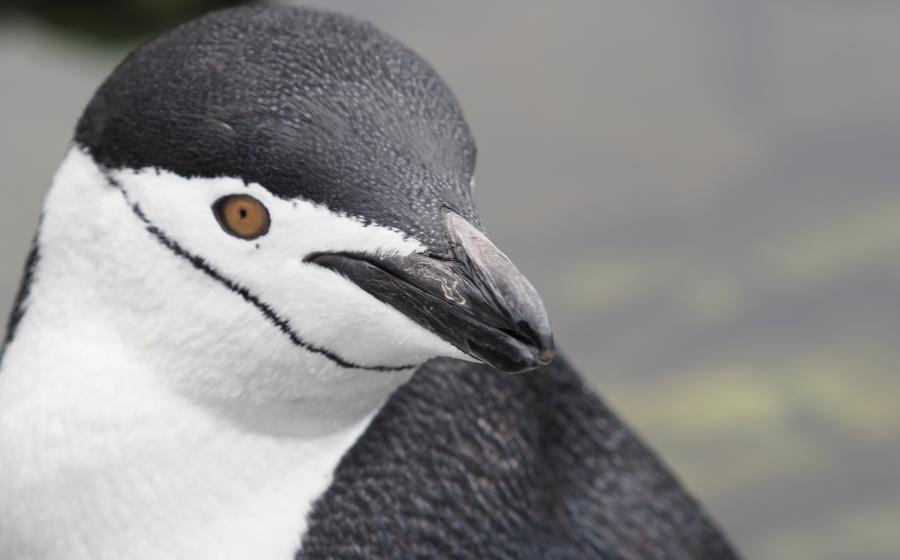Why Your C-card Is a License to Learn
Sometimes having just a little knowledge on a subject can be worse than none at all.
So I thought last summer as I stood beside a concrete pool, gearing up for my Open Water Diver training. I’d already been working as a copy editor at Scuba Diving, but accepting a new position at the magazine meant a chance to finally get certified and in the water. I was excited—and maybe just a little bit nervous.
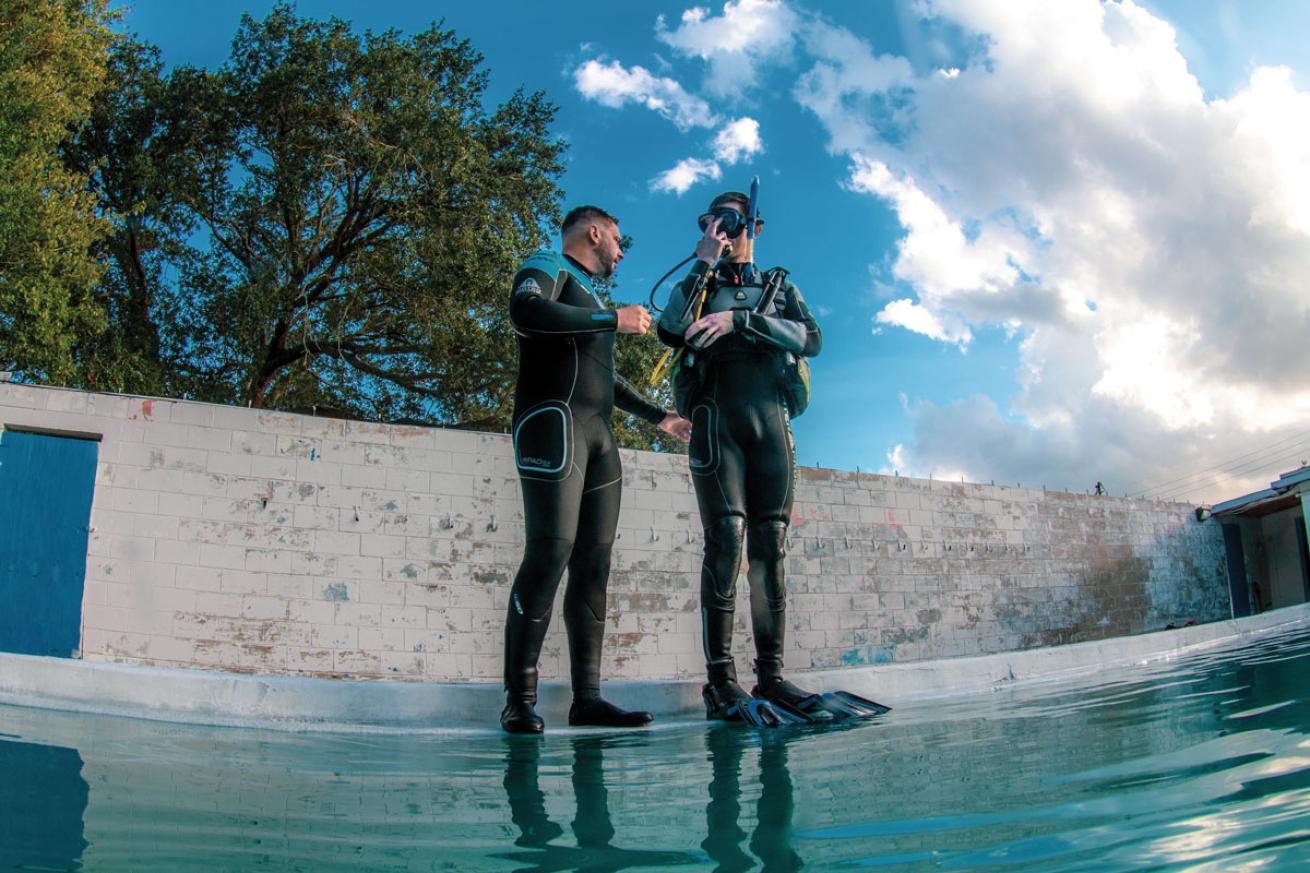
Becca HurleyThe author practices some basic dive skills with instructor Steven Lawrence in the pool at the Dive Station in Orlando, Florida.
For all the glamorous tales I’d heard from colleagues about far-flung dive trips in exotic locales and encounters with otherworldly underwater flora and fauna, I knew the sport was not without some risk. I’d spent the last few years editing Lessons for Life articles about emergency ascents and one-way trips into caves, and the idea of nitrogen bubbles forming inside my body sounded to me like something straight out of David Cronenberg’s nightmares. Adding to my unease, a sense of personal failure wasn’t the only thing riding on whether I could pull this off. Would I still be able to do my job well if it turned out diving just wasn’t for me?
MOMENT OF TRUTH
If you’re a seasoned diver, maybe you can’t remember getting the jitters before that first breath underwater, or maybe you never got them at all. As for me, when I first meet Roger Barakat, my PADI instructor from the Dive Station in Orlando, Florida, I’m harboring the kind of low-level but unshakable anxiety I usually reserve for speaking in public or showing my face at a party. We get to know each other a little bit as we prepare our gear and do a predive checklist. He explains what we’ll be going over in the pool—hand signals, sharing air, buoyancy control, recovering a lost reg—the basics. We start practicing skills underwater; I’m comfortable but still a little on edge. Doubts begin to seep into my thoughts: When it comes time to dive in open water, will I panic at depth? What if I don’t even make it that far? As I rush to the surface, coughing up freshly chlorinated water after a failed attempt to flood and clear my mask, I think: How in the world am I going to do this at 30 feet?
Spend any time with Barakat and it’s clear to see he’s passionate about what he does. A former law student, he got hooked about five years ago when a friend invited him to go freediving. He jumped head-first into training and made scuba diving a career as quickly as he could through PADI’s Instructor Development Course. In the pool, he explains to me that an Open Water certification doesn’t make you an expert diver who’s mastered every skill. Sure, you need to prove you have the required knowledge to dive safely without an instructor, but after this course it’s important to refine and develop your skills. “When I sign off on your certification,” he says sagely, “I’m giving you a license to learn.”
When it finally comes time to dive in open water, we head to Devil’s Den, a “prehistoric” spring mobbed with snorkelers despite the looming Florida summer thunderstorms. We descend the stairway into an immense cave and stand on a platform in waist-high water.
“Is your BC inflated?” asks Barakat.
“Yeah, but I don’t know where the edge of this platform—” Before I can finish my sentence, he gives me a nudge and I’m in the water, floating easily on my back, rain falling on my face through the karst window in the cave’s ceiling. We make our way to the guide line and, before I can think too much about it, begin our descent.
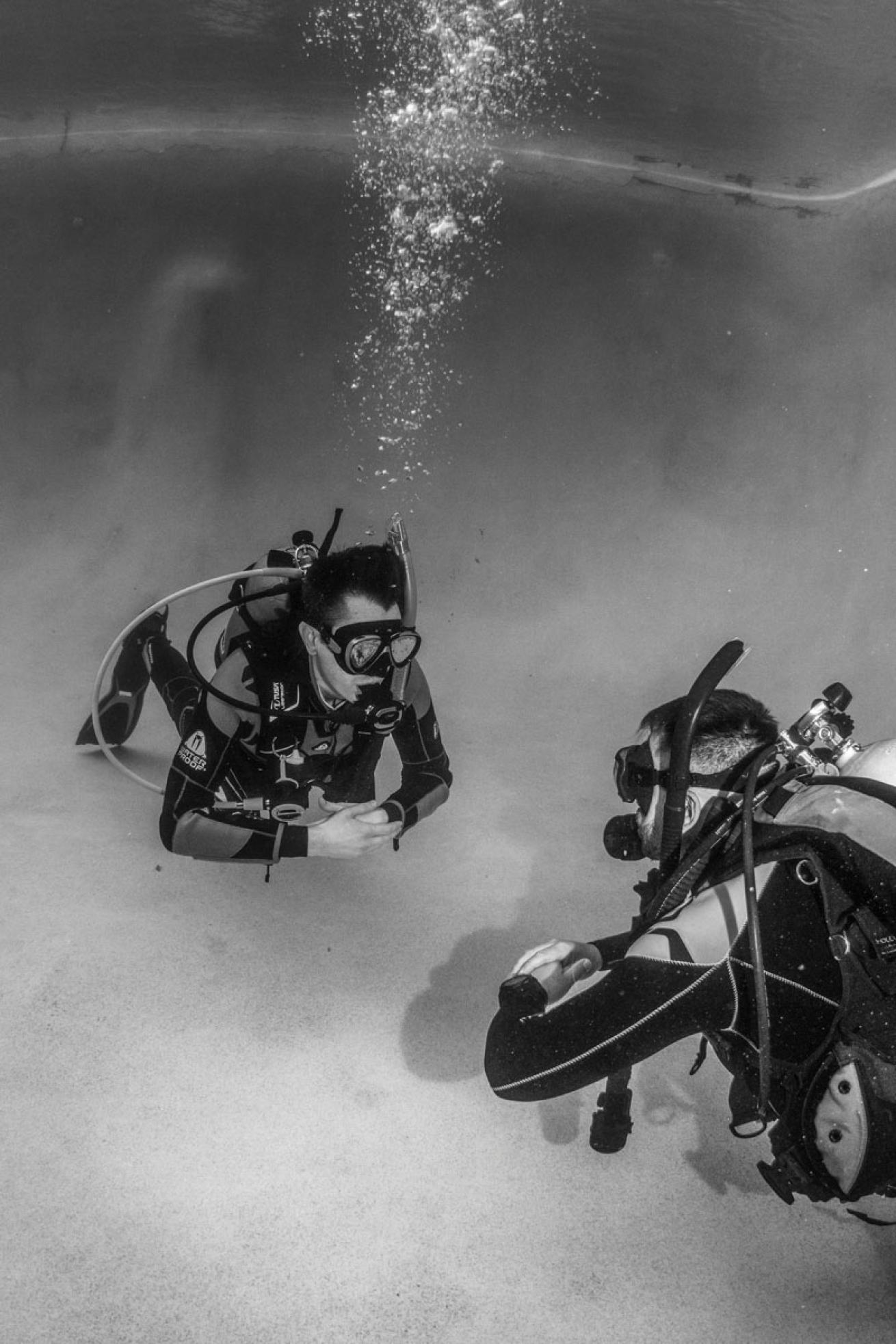
Becca HurleyThe author practices his dive skills in the pool at the Dive Station in Orlando, Florida.
I’m struck by how different my first open-water dive looks and feels compared to the pool. It’s colder and darker—and much deeper. At about 20 feet, we make it to another platform. The plan is to stop here and check off some skills. This is another notion that probably doesn’t occur to most experienced divers, but suddenly the absurdity of my situation dawns on me: The only thing between me and a watery demise is this mask and regulator on my face. I’m feeling vulnerable, and for a split second, some reptilian instinct tells me to ditch everything strapped to my back and bolt to the surface as fast as I can.
But my instructor’s calm demeanor is contagious. I remember I’m breathing just fine, and I rest lightly on the platform to practice flooding my mask and retrieving my reg. The skill that left me choking down pool water earlier in the day proves to be no problem at all, which gives me all the confidence I need to keep going. Before I know it, we’re done with the skills portion of the dive.
We do a couple of laps around the spring—me blinding Barakat with my dive light as I subtly yo-yo up and down trying to maintain neutral buoyancy—and ascend. By now I’ve loosened up a bit more and I’m able to take in the underwater scenery as fish flit among eerie rock formations.
Another day and three more open-water dives later, and my license to learn was in hand.
SO, WHAT NOW?
Continuing your training can mean a lot of things. There are dozens of courses, from Advanced Open Water Diver to specialties such as cave or rescue diving. But becoming a better diver doesn’t have to mean taking a specialty course. Learning those fundamental dive skills in my Open Water course gave me a base to work from.
Now, any dive is an opportunity to practice controlling my breathing or perfecting my buoyancy (good news for my buddy when I’m holding a dive light), and even more, prove to myself that I don’t need to be held back by doubts and intrusive thoughts.
It didn’t occur to me when Barakat said it, but having a license to learn is a powerful thing. Like any other skill, it doesn’t matter if you’re a newbie or someone who’s been diving for 40 years—there’s always room to improve yourself. There are many good reasons people strive to become better divers, whether they want to do more challenging dives, explore new environments or take better photos.
But sometimes self-improvement is its own reward. Sometimes you simply need to prove to yourself that you can.

